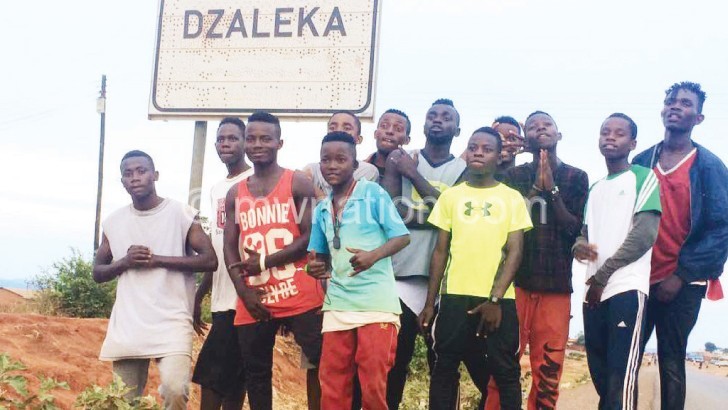Making young refugees tick
Freddy Farini, 24, fled war-torn Democratic Republic of Congo (DRC) in 2013 and took refuge at Dzaleka Refugee Camp in Dowa.
Originally from Goma in North Kivu, Freddy and his brother, Toussaint, escaped war-related atrocities in their country.
Now, they feel they can help improve the welfare of refugees at Dzaleka despite the restrictions they face when it comes to employment, business, education and movement.
Freddy says the youth at the refugee camp can harness their potential to develop Malawi.

“At the camp, there are numerous young persons with great potential and energy to change their lives and surrounding communities,” he says.
In 2015, Freddy and his brother teamed up with their peers-Alain Tenta, Iris Ngandji and Rachel Mwamba -to form Salama Africa, a group which aims at lessening poverty by unearthing talent among youthful refugees at the camp.
“Salama,” says Freddy “is a Swahili word for peace and tranquility.”
Registered under the Refugee Department in the Ministry of Home Affairs and Internal Security on February 20 2015, Salama Africa offers hope to refugees through numerous activities, including music, dancing, drawing, handicraft and entrepreneurship.
“We have offered close mentorship to 90 youthful refugees and have reached out to more than 1 000 other refugees through public events like music festivals,” says Freddy.
Salama Africa runs a restaurant at the camp, culinary art classes and fashion designing.
It is not only benefiting the youth based at Dzaleka, but also grooming young Malawians surrounding the camp.
Some of the dancers perform with some prominent musicians in the country. The group performed at the Urban Music Party (UMP) awards last year.
“They remain one of the main highlights of the UMP award gala. They are probably the best dance group at the moment in Malawi. They impress with different dance styles,” says UMP director Khumbo Kabuzi.
Dancer Jean Marina, 17, from DRC, joined Salama Africa in 2015. Belonging to the group has revamped his self-belief.
“I quit school, but when I joined this group, they encouraged me to re-enrol. I gain so much joy in performing for Salama. I am now positive about life,” she says.
Gasaro Vanessa has lived at Dzaleka since 2013. She is well versed with culinary art, thanks to Salama Africa.
“For the three months in the group, I have acquired lots of skills while working at Salama Africa Restaurant. Now, I can support myself,” says the 19-year-old refugee from Rwanda.
Salama Africa gets support from Jesuit Refugee Service (JRS) and United Nations High Commissioner for Refugees (UNHCR).
According to JRS country director Rufino Seva, the group, which started as a dance group, evolved into a community-based organisation in 2016.
“Arts aside, Salama helps address challenges young people are facing at Dzaleka. They also network and collaborate with like-minded youth groups in Malawi to expand their reach,” he says.
UNHCR public information associate Lumbani Msiska says the UN body will continue providing support to Salama Africa.
“Apart from supporting their activities through their direct implementation budget, we are also linking the group to various diplomatic missions and high-profile individuals to building better relationships for the benefit of their programmes and activities,” he says.
UNHCR supports Salama Africa through Plan International Malawi, Jesuit Refugee Services (JRS) and the Churches Action in Relief and Development (Card).
According to UNHCR, the country is currently hosting 8 967 refugees and 25 123 asylum-seekers.
Dzaleka offers refuge and asylum to 31 578 people, mostly from DRC, Burundi, Rwanda, Somalia and Ethiopia. Luwani Refugee Camp in Neno District hosts 3 345 asylum seekers from Mozambique.
There are about 60 million refugees worldwide, necessitating the demand for programmes to harness their creativity and amplify their voices.
Freddy is happy that Salama Africa offers him what he calls “artistic expressions”.
He says: “Art plays a huge role in transforming refugees’ lives. It can also be used as a powerful tool for advocacy and communication. “We want to promote youth empowerment at Dzaleka and surrounding communities though this approach.”





